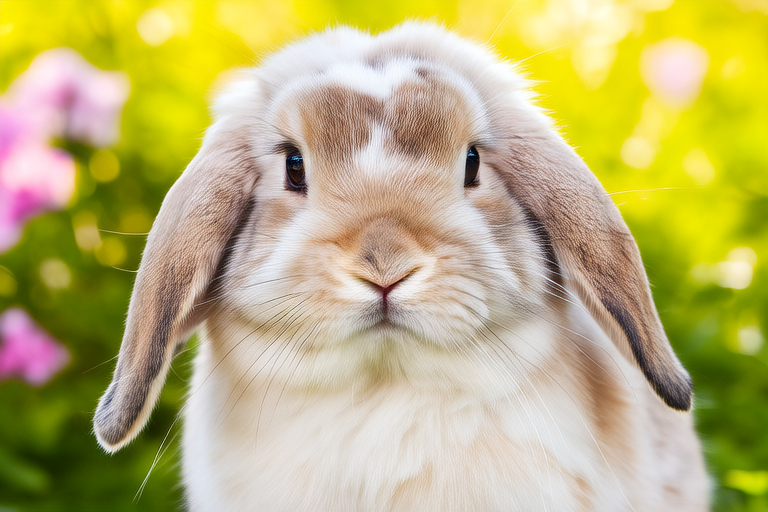Adorable and Affectionate: How Lop Rabbits Are Winning Hearts Worldwide
In recent years, lop rabbits have become increasingly popular among pet enthusiasts. Their endearing appearance and gentle demeanor make them ideal companions for families and individuals alike. With their signature floppy ears and affectionate personalities, lop rabbits are winning hearts worldwide. This article delves into the unique characteristics of these charming creatures, providing insights into their care, dietary needs, and common health issues. Through personal stories and testimonials from devoted owners, we’ll explore why lop rabbits have captured the hearts of so many.
The Growing Popularity of Lop Rabbits
The trend towards adopting lop rabbits as pets has been on the rise, thanks to their docile nature and adaptability. These rabbits come in various breeds, including English Lops, French Lops, and Mini Lops, each with its own set of traits. What sets lop rabbits apart is their large, drooping ears, which can grow up to 12 inches long in some breeds. This distinctive feature gives them a unique and instantly recognizable appearance.
Lop rabbits are known for their calm and friendly disposition, making them perfect for households with children. They are generally easy to handle and enjoy human interaction, often seeking out attention and cuddles. Their playful yet gentle nature makes them a delightful addition to any family.
Distinguishing Features of Lop Rabbits
One of the most striking features of lop rabbits is their long, floppy ears. These ears are not just a cosmetic trait but also serve as a means of communication. When a lop rabbit is relaxed and happy, its ears will naturally droop. However, if it’s alert or anxious, the ears may perk up slightly. This behavior allows owners to gauge their rabbit’s mood easily.
Aside from their ears, lop rabbits have a robust body structure, with a broad head and strong limbs. They come in a variety of colors, including white, black, chocolate, and blue, adding to their charm. Their soft, dense fur requires regular grooming, typically once or twice a week, depending on the breed.
Proper Care and Maintenance
Providing the right environment is crucial for the well-being of your lop rabbit. A spacious hutch or cage that allows ample room for movement is essential. The living space should be clean, dry, and well-ventilated. It’s important to provide a safe area where your rabbit can exercise and play. Many owners opt for a dedicated indoor area or a secure outdoor run to ensure their rabbit gets enough physical activity.
Regular grooming is necessary to keep your lop rabbit’s coat healthy and free from mats. Use a slicker brush or comb to remove loose hair and prevent tangles. Bathing should be minimal, as rabbits are self-cleaning animals. If bathing is necessary, use a gentle, pet-safe shampoo and thoroughly rinse to avoid skin irritation.
Dietary Needs of Lop Rabbits
A balanced diet is vital for maintaining the health of your lop rabbit. The primary component of their diet should be hay, such as timothy or meadow hay, which provides essential fiber for digestion. Fresh vegetables and leafy greens, like romaine lettuce, kale, and spinach, should be offered daily in moderation. Avoid feeding foods high in sugar or starch, such as carrots or fruits, as they can lead to obesity and dental issues.
Commercial rabbit pellets can be given in small quantities to supplement their diet, ensuring they receive all necessary nutrients. Always provide fresh water in a spill-proof bottle or bowl, as rabbits need constant access to water for hydration and digestion.
Common Health Issues and Preventive Measures
Lop rabbits, like all animals, are susceptible to certain health issues. Dental problems are common, particularly if the diet lacks sufficient fiber. Regular check-ups with a veterinarian specializing in exotic pets can help identify and address any issues early. Signs of dental trouble include drooling, difficulty eating, and weight loss.
Gastrointestinal stasis, a condition where the digestive system slows down or stops, is another concern. Ensuring a proper diet and providing opportunities for exercise can help prevent this. Additionally, keeping your rabbit’s living area clean and reducing stress are key to maintaining its overall health.
Testimonials from Lop Rabbit Owners
Meet Sarah, who adopted a Mini Lop rabbit named Whiskers two years ago. “Whiskers has brought so much joy to our home,” she says. “He loves to snuggle and is always eager to play. His gentle nature makes him a perfect companion for my young children.” Sarah credits Whiskers’ easygoing personality for his popularity within the household.
John, owner of a French Lop named Max, shares, “Max is more than just a pet; he’s a member of the family. His big, floppy ears are adorable, and his calm demeanor makes him a great listener. He enjoys being petted and even follows me around the house.” John emphasizes the importance of spending quality time with his rabbit, noting how their bond has grown stronger over time.
Conclusion: The Appeal of Lop Rabbits
Lop rabbits continue to win hearts worldwide with their unique appearance, gentle nature, and adaptability. Their large, floppy ears, combined with their playful yet affectionate personalities, make them ideal companions for families and individuals alike. Proper care, a balanced diet, and regular veterinary check-ups are essential for ensuring their health and happiness.
As more people discover the joys of owning a lop rabbit, it’s clear that these charming creatures will remain popular choices for pet lovers. Whether you’re looking for a new family member or a loyal friend, a lop rabbit could be the perfect addition to your household. With their increasing presence in homes around the globe, lop rabbits are undoubtedly here to stay.
